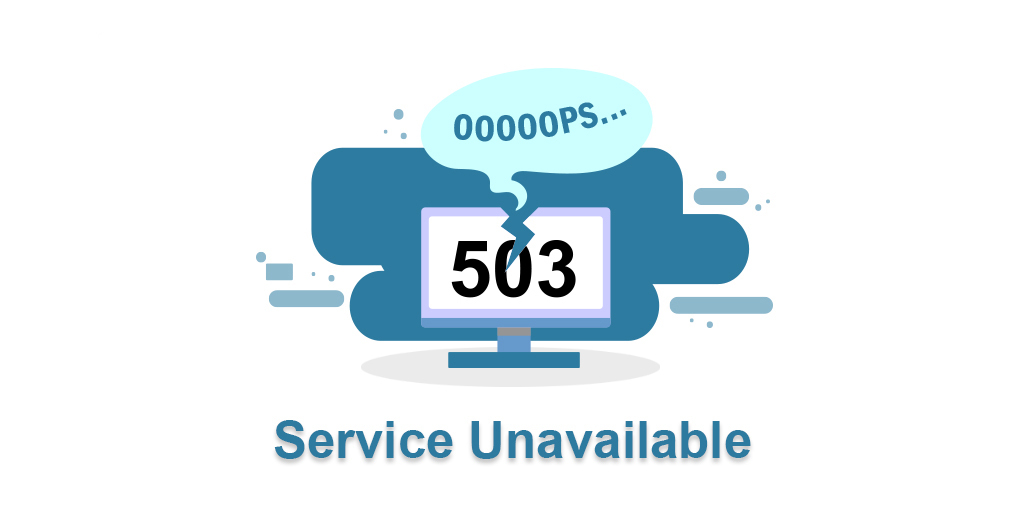For small businesses, stepping into the digital world isn't just a smart move; it's often a must-do. One of the key building blocks in this digital journey using domain hosting. It's a big deal as it can hugely affect how your business appears and gets discovered in the vast landscape of the internet.
In this blog post, we're going to chat about why domain hosting is important for small businesses. We'll break down why it's not something you want to skimp on if you're looking to grow your business and get noticed online. So, let's dive in and explore why you really should pay attention to this vital part of your online presence.
What is Domain Hosting?
Domain hosting, or simply web hosting, is all about making your website available on the internet. Think of it as the digital plot of land where your website sets up shop. When you create a website, you're essentially designing and filling it with all your content. But to share it with the world, you need a place to store it, and that's where web hosting comes in.
Here's how it all pieces together:
Domain Name
This is your web address, like www.yourbusiness.com. You register the name, and it needs a home on a server.
Server
Picture a server as a supercharged computer that's always online. It's where your website lives, from text and images to videos and code.
Hosting Provider
These are companies that own and manage servers. They offer different hosting plans to match your needs.
DNS The Domain Name System (DNS) plays matchmaker by connecting your domain name to the server's IP address. This ensures that when someone types your web address, they're sent to the right server.
Website Files Your website's files and data reside on the server. When someone visits your site, these files get fetched and shown in their web browser.

Why Do Small Businesses Need the Best Domain Hosting?
Having a stable online presence is absolutely essential, and at the core of this process, you'll find domain hosting. It's not merely a technical requirement; it's a strategic move that can either make or break your small business. Here's why top-notch domain hosting is crucial for small businesses like yours:
First Impressions are Key
A professionally hosted domain, characterized by a web address such as www.yourbusiness.com, goes far beyond being a simple online location. It signals to visitors that your business is committed to excellence and reliability. This serves as the foundation for establishing lasting connections and fostering trust among those seeking the products, services, or information your business offers.
Building Credibility and Trust
Free or shared hosting can give your business an unprofessional image. Investing in high-quality domain hosting enhances your credibility and fosters trust among potential customers.
Tailored to Your Brand
The best domain hosting allows you to match your web address with your business name. This strengthens your brand identity and makes it simpler for customers to find you.
Reliability and Uptime
A reputable domain host ensures stable and dependable services, guaranteeing that your website remains accessible to customers 24/7. Downtime can result in lost sales and harm your reputation. Reliability is key, as it ensures that your website functions smoothly and consistently, leading to a positive user experience.
Speed Matters
Speed is of great importance in online businesses. Leading domain hosting providers offer optimized servers and content delivery networks (CDNs) that enable your website to load swiftly. Sluggish sites often lead to high bounce rates.
Security is Paramount
Cybersecurity is a concern for every online business. Top domain hosting providers invest in security features such as firewalls, SSL certificates, and regular backups, safeguarding your website and customer data.
Scalability
As your small business expands, your website's requirements may evolve. High-quality domain hosting permits easy scalability, ensuring your site can handle increased traffic and content. This is crucial for accommodating growth and maintaining a seamless online presence as your business flourishes.

SEO Perks
Search engines prefer fast, reliable websites. The best domain hosting contributes to better search engine rankings, potentially attracting more organic traffic. This increased visibility in search results can translate into a broader online audience, more website visits, and ultimately, greater opportunities for your small business to thrive.
Exceptional Customer Support
When issues arise, having access to dependable customer support is invaluable. Leading domain hosting providers offer responsive support to quickly address any concerns.
Factors to Consider When Choosing a Domain Hosting Service
When choosing a domain hosting service for your small business, there are several factors to keep in mind. Your hosting provider plays a key role in determining how your website performs, its security, and its overall success.
Type of Hosting
It's essential to understand the various hosting types available, including shared, VPS (Virtual Private Server), dedicated, and cloud hosting. The choice should align with your website's specific needs, traffic volume, and budget.
Reliability and Uptime
Seek out a hosting provider with a strong track record of high uptime, ideally 99.9% or more. This ensures that your website remains accessible to users without disruptions.
Performance and Speed
Website speed is very important, as slow loading times can lead to visitors dropping out and negatively impact search engine rankings. Choose a hosting service that offers fast loading times and uses content delivery networks (CDNs) for speed optimization.
Ease of Use
An intuitive control panel makes website management tasks easier. Ensure the hosting platform is user-friendly and aligns with your level of expertise.
Backup and Restore Options
Regular backups are critical for data protection. Verify the hosting provider's backup frequency and understand their procedures.
Cost and Value
It's important to compare hosting plans and pricing. Seek a balance between affordability and the features that are essential for your business.

Cost and Value
It's important to compare hosting plans and pricing. Seek a balance between affordability and the features that are essential for your business.
Domain Management
Check whether the hosting provider offers domain registration or transfer services. This can streamline the process of managing your online presence.
Email Hosting
If email communication is vital for your business, ensure that the hosting service provides reliable email hosting, complete with essential features like spam filtering.
Support for CMS
If you're using a content management system (CMS) like WordPress, verify that the hosting service is compatible and offers straightforward installation options.
Server Location
Select a server location that's geographically close to your target audience to minimize latency and enhance website loading speed.
Reviews and Reputation
Reading customer reviews and testimonials can provide insights into the hosting provider's reputation and overall customer satisfaction.
Money-Back Guarantee
Having a money-back guarantee in place offers peace of mind. Examine the terms and duration of this guarantee.
Extras and Add-Ons
Some hosting providers offer additional features such as website builders, marketing tools, or free domain registration. Evaluate these extras to see if they align with your needs.
Terms of Service and Policies
Review the hosting provider's terms of service, acceptable use policy, and privacy policy to understand their guidelines and limitations.
Migration Options
If you plan to transfer an existing website, ensure that the hosting service supports a smooth migration process.

Review of the Best Domain Hosting Services for Small Businesses
Stablepoint
Stablepoint offers the ideal domain hosting solution for small businesses:
- Reliability: High uptime ensures your website is always accessible.
- Speed: Fast loading times enhance user experience and SEO.
- Scalability: Easily accommodate growth without disruptions.
- Security: Robust measures protect your website and data.
- Support: Responsive 24/7 customer support.
- User-Friendly: Intuitive control panel for easy management.
- Backup: Frequent backups and easy restoration.
- Domains: Simplified domain management.
- Email: Reliable email hosting with spam filtering.
- Money-Back Guarantee: Confidence in their services.
- Server Locations: Strategic options for optimal speed.
- Extras: Added features for enhanced online presence.
- Migration Support: Hassle-free website transfers.
Verpex
Verpex is the top choice for small businesses for several key reasons:
- Dependable Uptime: Verpex ensures your website is always available to customers.
- Speed Optimization: Fast-loading websites enhance user experience and SEO rankings.
- Robust Security: Strong security measures protect your site and customer data.
- Responsive Support: Their support team is ready to assist with any inquiries 24/7.
- Scalability: Easily accommodate business growth without disruptions.
- User-Friendly: An intuitive control panel simplifies website management.
- Reliable Backups: Frequent backups ensure your data is secure and recoverable.
- Effective Email Hosting: Reliable email services with spam filtering for seamless communication.
Web Hosting Buzz
Web Hosting Buzz is an ideal choice for small businesses because of:
- Reliable Uptime: Ensures your website is always accessible.
- Impressive Speed: Fast loading times for better user experience.
- Strong Security: Robust measures protect your site and data.
- Responsive Support: Quick assistance for any inquiries.
- Scalability: Easily adapt to business growth.
- User-Friendly: An intuitive control panel simplifies management.
- Dependable Backups: Frequent backups for data security.
- Email Excellence: Reliable email hosting with effective spam filtering.

How to Set Up Domain Hosting for Your Small Business
Setting up domain hosting for your small business is an important step in establishing a good online presence. Here's a simple guide to help you kickstart this process with ease:
- 1. Choose a Domain Name: Begin by selecting a domain name that not only represents your business but is also easy to remember. Ensure it's unique and mirrors your brand identity.
- 2. Select a Hosting Provider: Conduct thorough research to choose a reputable hosting provider that aligns with your specific needs and budget. Consider essential factors such as reliability, speed, security, and the quality of customer support.
- 3. Choose a Hosting Plan: Depending on your website's requirements, opt for a hosting plan that suits your needs. Shared hosting is often cost-effective for small businesses, while VPS and dedicated hosting offer more extensive resources.
- 4. Register Your Domain: If you haven't already registered your domain, your chosen hosting provider can assist with this step. Ensure your domain is linked to your hosting account.
- 5. Set Up Your Website: Utilize a website builder or a content management system (e.g., WordPress) to create and design your website. Customize it to reflect your brand identity and align with your business goals.
- 6. Configure DNS Settings: Access your hosting account's DNS settings and configure them to point to your website. This crucial step ensures that when people enter your domain, they are easily directed to your website's files hosted on the server.
- 7. Upload Website Files: Transfer your website files to the hosting server using FTP or a file manager provided by your hosting provider.
- 8. Test Your Website: Before taking your website live, do some tests to ensure that all its features, links, and pages function.
- 9. Set Up Email: If email communication is vital to your business, configure email accounts associated with your domain through your hosting provider's email hosting service.
- 10. Implement Security Measures: Make your website's security by installing SSL certificates, enabling firewalls, and consistently updating software and plugins.
- 11. Regular Backups: Establish a reliable backup routine to protect your website's data. Most hosting providers offer automated backup solutions.
- 12. Monitor and Maintain: Keep a watchful eye on your website's performance and security. Make sure to address any issues that may arise and ensure your website's content remains up to date.
- 13. Scale as Needed: As your business experiences growth, consider scaling your hosting plan to accommodate increased traffic.
- 14. Seek Support: Never hesitate to reach out to your hosting provider's customer support for assistance with any technical issues or inquiries.
What is domain hosting, and why do I need it for my small business website?
Domain hosting, often referred to as web hosting, is a service that allows you to publish your website on the internet. It provides the infrastructure and resources necessary for your website to be accessible to users worldwide. You need domain hosting to make your website available online, ensuring it can be found and visited by potential customers.
How do I choose the right domain name for my small business website?
When selecting a domain name, consider the following: - Keep it short, memorable, and easy to spell. - Reflect your business name or brand. - Avoid using hyphens or special characters. - Choose a domain extension (.com, .net, .biz) that suits your business type. - Check for domain name availability and trademarks to avoid legal issues.
What types of hosting plans are suitable for small businesses?
Small businesses often benefit from shared hosting, as it's cost-effective and suitable for low to moderate traffic websites. Virtual Private Servers (VPS) are also a good choice for businesses that anticipate growth and need more resources. Dedicated hosting is typically reserved for larger enterprises with high traffic and resource demands.
How do I transfer an existing domain to a new hosting provider?
To transfer your domain, follow these general steps: - Unlock your domain with your current registrar. - Request an authorization code (EPP code). - Initiate the domain transfer with your new hosting provider. - Provide the EPP code when prompted during the transfer process. - Confirm the transfer via email when you receive a notification. - Update your DNS settings with your new hosting provider.
Conclusion
Selecting the right domain hosting for your small business is more than a technical choice; it's a strategic move that can significantly impact your online journey. Your hosting decision directly affects important aspects of your website, like accessibility, speed, security, and scalability.
Reliable hosting keeps your website consistently available, building trust with potential customers. Faster loading times improve user experience and boost your site's search engine rankings, attracting more visitors. Strong security measures protect your site and customer data. Responsive customer support ensures quick issue resolution, reducing disruptions. Scalability is essential as your business expands, allowing seamless handling of increased traffic and resource needs.

Nadejda Milanova
An experienced Content creator in the field of Search Engine Optimization (SEO) and WordPress. A true proffesional with a Master's degree focused on journalism.
Read more by Nadejda Milanova





